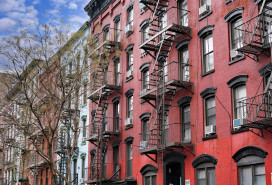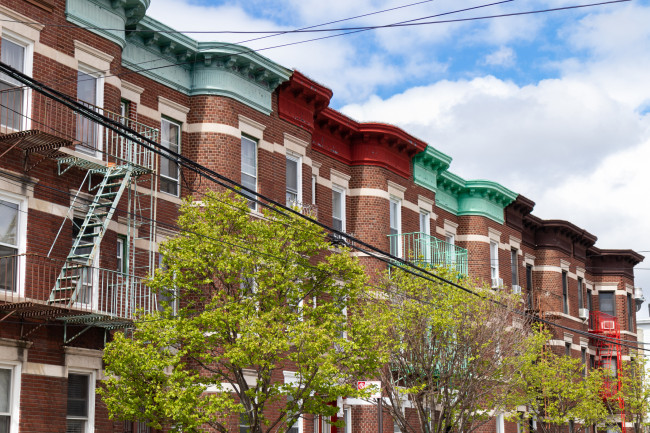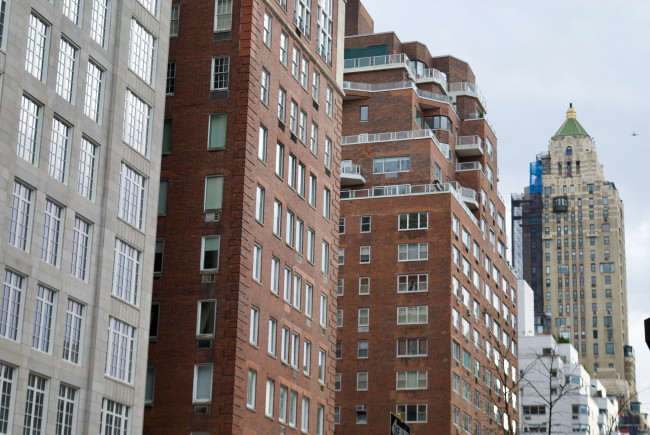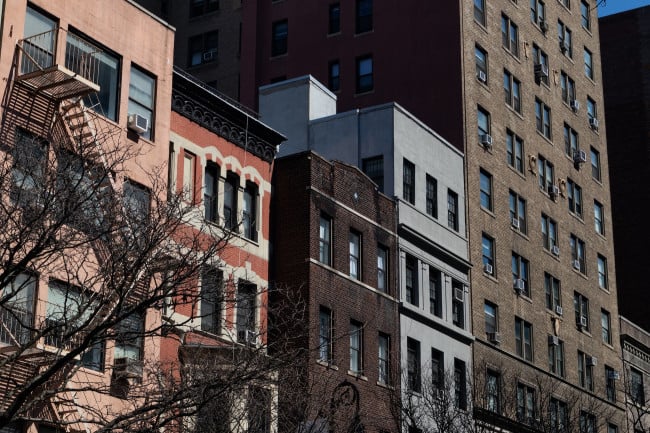Buy a co-op at a discount: All about HDFCs and how to get one
- Housing Development Fund Corporation co-ops have below-market prices and strict income caps
- They are intended as affordable, long-term housing for families rather than investment properties
- Find them on listing sites with advanced search features, such as StreetEasy's 'income restricted' filter
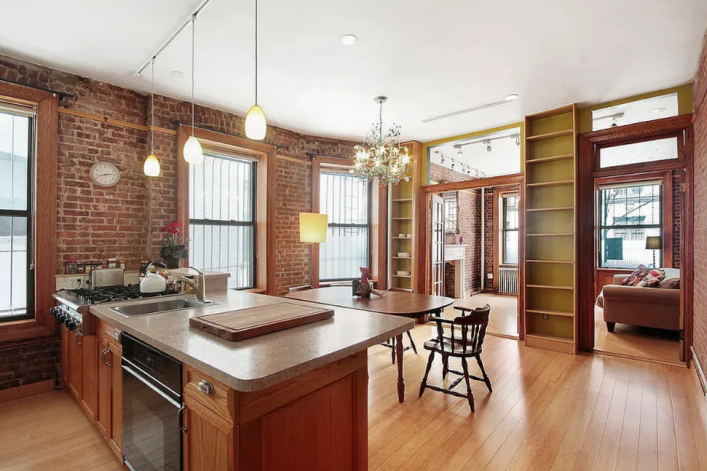
To qualify for this three-bedroom, one-bath apartment—100 West 141st St., #16, in Central Harlem—your annual, three-person household gross income must be $149,160 or lower. It is listed for $440,000.
Affordable housing in New York City typically refers to rentals, but what are the options for buyers? One so-called budget route to home ownership is through limited equity housing co-ops—essentially co-ops for people who earn lower incomes.
In NYC, at least 1,100 buildings are limited-equity co-ops set up as Housing Development Fund Corporations. They have strict income caps for buyers, are priced below the market rate, and are an appealing option for low- and middle-income New Yorkers.
HDFC buildings were created several decades ago when the city allowed tenants in buildings with neglectful landlords to form co-ops and take over their buildings. Some residents bought their apartments for $250 apiece, according to a 2014 article in The New York Times—and yes, that's the correct number of zeroes.
[Editor's note: A previous version of this article ran in August 2024. It has been updated with new information for August 2025.]
Naturally, prices have risen since the HDFC program was launched—now the average cost of HDFCs is more like $350,000 to $500,000—but in most cases, they're still far cheaper than the market rate in their neighborhoods. As of this writing, StreetEasy showed about 164 current HDFC listings in NYC (see below for how to narrow your search), ranging in price from $85,000 for a one bedroom in the Bronx to $1.85 million for a two bedroom on Riverside Drive in Washington Heights.
Each listing typically provides the specific income limits that the HDFC building has agreed to impose per government agencies (some require you to inquire for the restrictions); for example, a Hamilton Heights one bedroom that is on the market for $150,000 dictates that the buyer’s annual income cannot exceed $89,658 in the current year or two prior years.
Another bonus is that HDFCs often have more affordable monthly maintenance fees, which is a major consideration when inflation is high. Case in point: The above one-bedroom unit has a monthly fee of $594.
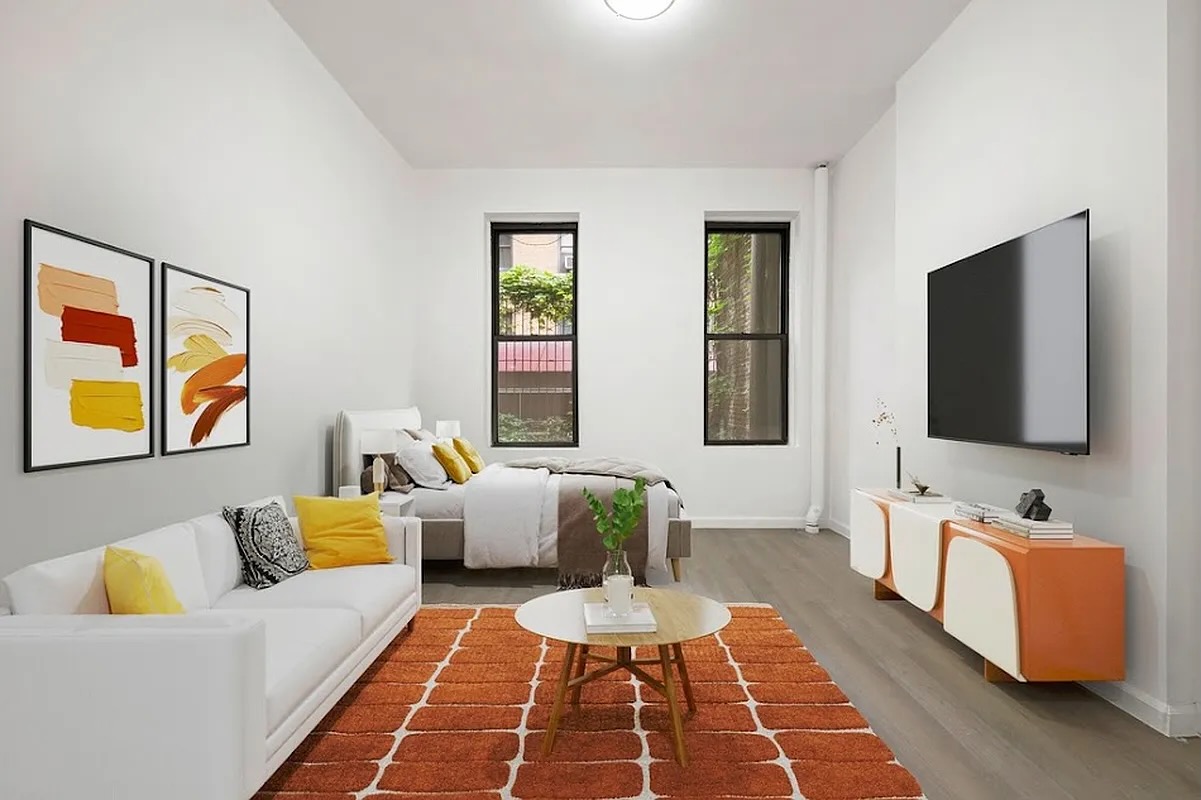
How HDFCs work
HDFCs were formed under various state regulations, including private housing finance laws, and they have regulatory agreements that vary depending on the building. Dean Roberts, an attorney at the law firm Norris McLaughlin, noted that HDFCs often function similarly to typical co-ops; rules vary from building to building, depending on the bylaws and the board. In this way, HDFCs differ from Mitchell Lama buildings, which operate under more uniform regulations. (Another difference is that you apply to Mitchell Lama buildings as you would for NYC’s affordable rental lottery.)
Besides variations in the way HDFCs operate, the condition of each building can vary significantly as well.
“On the one hand, it was a good program to preserve and rehabilitate these buildings, but once ownership was transferred to tenants, the city pretty much left them alone,” said Serge Joseph, a partner at Himmelstein, Gribben, & Joseph. “The people in charge of managing these buildings often did not have professional managerial expertise or background, so some HDFCs are not as well-managed as other co-ops.”
What also sets HDFCs apart is the financial structure. It works like this: Most HDFC buildings receive partial tax exemptions and subsidies to help keep operating costs—and maintenance charges for shareholders—at a minimum. Buyers in HDFCs must meet strict income caps, either tied to the area median income (AMI) or a formula based on the apartment's utilities and maintenance fees. The AMI changes annually and is currently $145,800 for a three-person household.
Some HDFCs require buyers to earn no more than 165 percent AMI (or $240,570 for a three-person household); others are limited to buyers whose incomes do not exceed 120 AMI (or $174,960 for three people). Others are open only to buyers who don’t earn more than six or seven times the monthly maintenance, utilities, and original purchase price per month.
Importantly, HDFCs are primarily designed to act as affordable, long-term housing for families rather than investment properties.
To keep would-be speculators at bay, HDFC owners are typically hit with a significant flip tax when it comes time to sell, ranging from 10 to 30 percent in some cases. The flip tax can be even higher if you have held the apartment for fewer than five years. And, despite the lack of any caps on resale price, income restrictions and flip taxes function to keep listing prices relatively low.
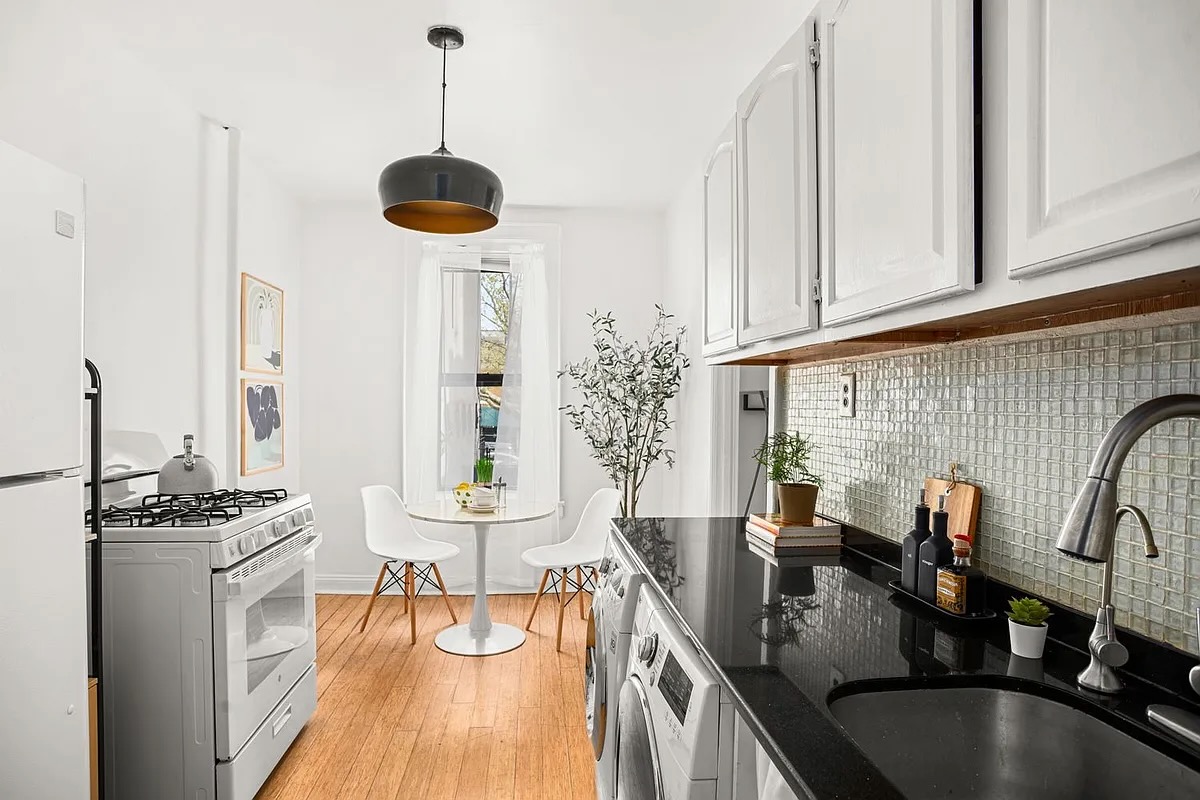
What type of buyer qualifies for an HDFC co-op?
Prices for HDFC co-ops have been creeping up (especially in neighborhoods like South and Central Harlem, the Lower East Side, and Hamilton Heights), presenting prospective buyers with a frustrating conundrum: How to come up with a down payment that’s tens of thousands of dollars while still earning less than a building's income cap.
These conditions ultimately favor buyers with low (ish) incomes but significant assets, such as retirees, young buyers whose parents are helping them out, or those with trust funds or an inheritance to lean on—not exactly the demographic you think of when discussing affordable housing.
Some HDFCs prefer all-cash buyers because the building requires immediate cash to cover repairs or outstanding debts. Even if the building accepts a buyer with financing, locking down mortgage approval for an HDFC building can be difficult, as banks are wary of financing limited-equity co-ops. In the event of foreclosure, the bank would be bound to the same resale and income restrictions as the shareholder, making it a less appealing financial prospect.
If you need help finding a lender, the listing agent for the apartment should be able to direct you to banks that approve financing for HDFCs or offer special programs for first-time buyers. The NYC Department of Housing Preservation and Development, which provides a HomeFirst Downpayment Assistance program, is another potential resource.
“The price of an apartment may well be lower than the market price, but because it’s difficult to secure financing, you often have to come up with cash, and most people who would qualify for an HDFC under the income requirements do not have $250,000 (for example) lying around,” Joseph said.
Another caveat: Since their inception, the city has foreclosed on hundreds of HDFC buildings (60 in 2018 alone), where taxes, water, or sewage bills are past due, deeming them “distressed.” When this happens, ownership can be transferred to new management, and the building’s shareholders become tenants. Situations like this highlight the importance of paying your taxes and utilities on time.
That said, this seizure of property—amounting to tens of millions of dollars—has been part of a class action legal fight, and HDFC owners won a significant victory in 2021 when the U.S. Court of Appeals for the Second Circuit ruled that their lawsuit could proceed. It’s been argued that the seizure of these buildings targets communities of color, taking away the opportunity to generate inter-generational wealth. The case was eventually settled in March 2024, in which the NY State Office of Court Administration agreed to implement protections for homeowners across the state.
Have you successfully bought a co-op in a HDFC building? If you have first-person advice to share about the process, send us an email. We respect all requests for anonymity.
Even with higher prices and eager speculators circulating, most HDFC co-ops are still primarily family- and community-oriented with residents in them for the long haul.
This was the experience of Alice (who asked we use a pseudonym), a 20-something florist who, helped by an inheritance, recently bought into a fixer-upper Williamsburg HDFC.
"I really like my neighbors," she said. "As a born-and-bred New Yorker, it's really refreshing to be in a building where almost everyone is older and has been here for a long time (especially in a neighborhood like Williamsburg). My downstairs neighbor grew up in her apartment, and a woman on the first floor is living in the apartment her mom bought in the ’80s. There are a lot of interesting characters and everyone is laid back."
Indeed, many HDFC shareholders can opt to pass down their apartment to relatives, provided they follow specific succession guidelines that allow generations of a family to live in the same unit successively.
As with many HDFCs, Alice's apartment was in less-than-mint condition when she moved in, lacking basics like a stove and kitchen sink. "Oh God, it was a dump," she said. "It had been vacant for 10 years before I had moved in, so it was completely infested with roaches."
Even more so than in most co-ops, being engaged with how the building is run is often a key part of life in an HDFC. It's essential to know the program's history and be willing to participate in its governance.
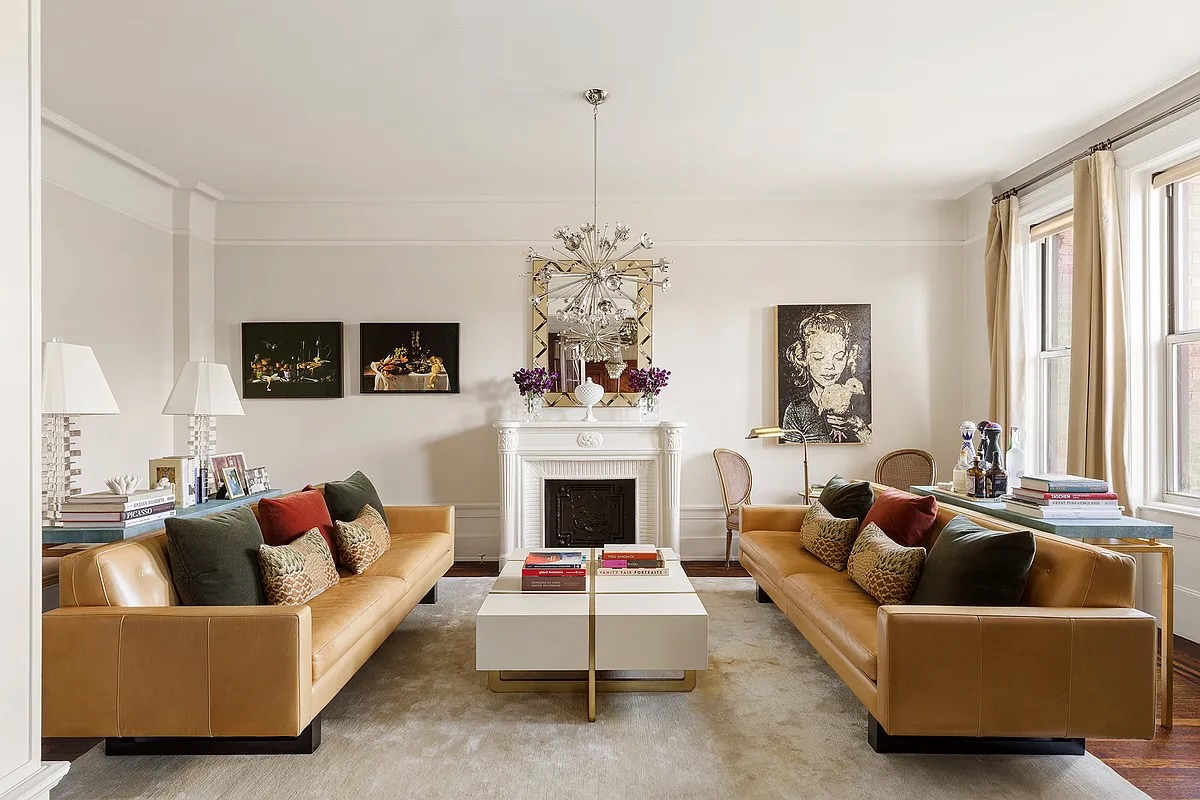
How do you get an HDFC co-op?
The Urban Homesteading Assistance Board (UHAB) is an organization that empowers low- to moderate-income residents in their housing goals. It provides services and training for those wanting to buy HDFC apartments, so you can reach out to them for advice and resources as your first step. (Its Co-operative Improvement Program is also helping roughly 20 percent of all HDFCs it found to be classified as distressed—representing 6,209 families in 266 buildings.)
To find an apartment, you can type "HDFC" in a keyword search on listing sites like StreetEasy, which also has an "income restricted" filter. (A few "sponsored" and "featured" listings will pop up, too, so read the fine print.)
“You need to do your due diligence,” Joseph said. “Find out whether the building has been approved for financing, and know the maximum income guidelines.” He would also recommend reviewing the building’s financials for the last couple of years, along with the contents of the governing documents, such as the proprietary lease, bylaws, and offering plan.
"Lastly, I would read the board minutes to see how well-managed the building is, and whether the board intends to undertake capital improvements in the near future, as this may cause an increase in the monthly maintenance,” he said.
The rest of the sale process is like a slowed-down version of what happens when you buy any co-op, as a government agency is involved in the oversight. It also involves extra paperwork.
Essentially, after the agency approves your package, it is forwarded to the board for their review, and then your interview is scheduled. Closing could take several more weeks.
—Earlier versions of this article contained reporting and writing by Virginia K. Smith, Alanna Schubach, and Emily Myers.
You Might Also Like




